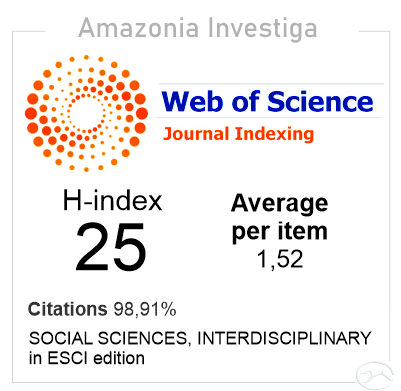Persistence and initiative: system-functional approach
Mots-clés :
Volitional qualities, system-functional approach, initiative, persistence, instrumental-semantic characteristics of personality.Résumé
The article discusses the main provisions of the system-functional approach in the disclosure of such volitional qualities as initiative and persistence. They proved that persistence and initiative in personality structure are the most important components of personality. The key elements to the disclosure of personality volitional traits are its instrumental and semantic characteristics, including dynamic, emotional, regulatory, and reflective-evaluative component.
Téléchargements
Références
Horesh, N., & Apter, A. (2006). Self-disclosure, depression, anxiety, and suicidal behavior in adolescent psychiatric inpatients. Crisis, 27(2), 66-71.
Kelley, J. E., Lumley, M. A., & Leisen, J. C. (1997). Health effects of emotional disclosure in rheumatoid arthritis patients. Health Psychology, 16(4), 331.
Klinger, E., Murphy, M. D., Ostrem, J. L., & Stark-Wroblewski, K. (2004). Disclosing daydreams versus real experiences: Attitudes, emotional reactions, and personality correlates. Imagination, Cognition and Personality, 24(2), 101-138.
Kleindienst, J., Ramaswamy, G. N., Gopalakrishnan, P., & Coffman, D. M. (2003). U.S. Patent No. 6,598,020. Washington, DC: U.S. Patent and Trademark Office.
Liu, C., Ang, R. P., & Lwin, M. O. (2013). Cognitive, personality, and social factors associated with adolescents' online personal information disclosure. Journal of adolescence, 36(4), 629-638.
Nakayama, S., Harcourt, J. L., Johnstone, R. A., & Manica, A. (2012). Initiative, personality and leadership in pairs of foraging fish. PLoS One, 7(5), e36606.
Quinton, W. J., Cowan, G., & Watson, B. D. (1996). Personality and Attitudinal Predictors of Support of Proposition 187—California's Anti?Illegal Immigrant Initiative 1. Journal of Applied Social Psychology, 26(24), 2204-2223.
Schüler, J., Job, V., Fröhlich, S. M., & Brandstätter, V. (2009). Dealing with a ‘hiddenstressor’: emotional disclosure as a coping strategy to overcome the negative effects of motive incongruence on health. Stress and Health: Journal of the International Society for the Investigation of Stress, 25(3), 221-233.
Wood, W. (2017). Habit in personality and social psychology. Personality and Social Psychology Review, 21(4), 389-403. Zajusz-Gaw?dzka, D., & Marsza?-Wi?niewska, M. (2015). Context-dependent effect of mood: the regulatory role of personality. Polish Psychological Bulletin, 46(1), 144-150.
?????????, ?. ?. (2019). ????????? ??????????????? ????????? ????????????? ?????? ? ???????. ?????????????? ??????????? ? ??????. 2019.? 3.

































































.gif)






